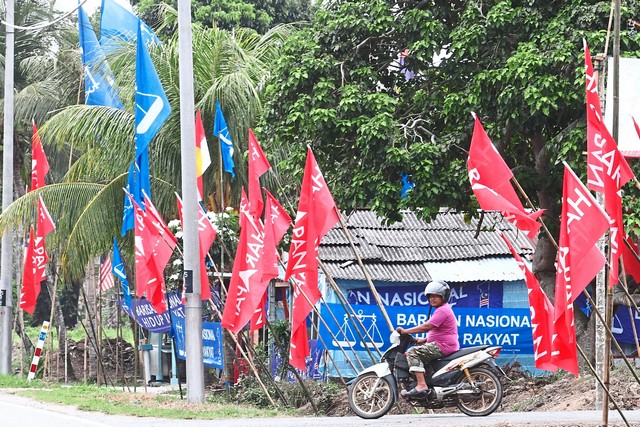By Chandra Muzaffar
No single by-election in a parliamentary democracy can provide a clear indication of the outcome of a future general election. Even the pattern emerging from a series of by-elections between general elections will not be able to tell us who the winner will be in the next overall contest. The by-elections between the thirteenth General Election in 2013 and the 14th General Election in 2018 testify to this.
Nonetheless, the Tanjung Piai by-election is significant. It will not only reflect how major political parties in Malaysia stand in relation to a sizeable, semi-rural, ethnically mixed constituency. TP will also be a measure of prevailing attitudes and orientations among our voters in the face of changes and challenges that may well shape the future of our nation.
The first set of voter attitudes we should look for is in connection with the changes that the new Pakatan Harapan government has introduced at the Federal and State level. There is no doubt at all that PH as a reform oriented government has initiated important changes in various areas ranging from public accountability and democratic governance to the management of the environment and the protection of women. Are grassroots rural and semi-rural communities aware of these changes? Do they appreciate their significance to their daily lives? Why is it important to a voter in TP that it is now an Opposition Member of Parliament and not a government backbencher who heads the powerful Public Accounts Committee in Parliament? Do youths in TP who are sometimes forced to seek employment in Singapore understand why lowering the voting age to eighteen — a reform introduced by the PH government — enhances their power in a democracy?
If these and other such changes that strengthen the democratic process and public accountability do not appear to have had a huge impact upon people in rural and semi-rural Malaysia and indeed a big segment of the citizenry, it is partly because they have not been explained and analysed to them in a manner that they would understand and appreciate. Effective political communication which is crucial when reforms are high on one’s agenda does not seem to be PH’s forte. It is a major weakness that has hampered and hindered PH’s effectiveness since it came to power in May 2018.
Related to communication and governance is yet another set of attitudes which the TP contest may bring to the fore. Do the voters in TP and the rest of rural Malaysia appreciate the efforts of the PH government in settling the massive debts accumulated by its Barisan Nasional predecessor? Some of the debts are intimately linked to corruption on a grand scale most vividly revealed in the 1MDB mega scandal. How concerned are the voters of TP about 1MDB and corruption as a phenomenon especially since it is a virus that has infected almost every artery of the body politic? Is fighting this scourge — given what has been revealed so far — a mission that every Malaysian is committed to? Or, is it true, as some surveys have shown, that only a small fraction of Malaysians sincerely abhor corruption and are prepared to act against it?
To put it differently, will TP expose the truth about how Malaysians actually feel about corruption and the abuse of power? Will it confirm how morally bankrupt we are as a people? Or will Tanjung Piai express mass revulsion against corruption and elite betrayal and therefore emerge as the TP, Turning Point, in the struggle for an ethical and upright society?
There is a third set of attitudes that may be put to the test in Tanjung Piai. Since it was ousted from power in May 2018, some UMNO leaders have been harping upon the alleged decline of Malay political power, the marginalisation of the Malay position, and the failure of the PH government to protect Malay interests. A lot of these reckless allegations are utterly baseless and are geared towards the manipulation of Malay communal sentiments for obvious political mileage. Have these pernicious communal perspectives seeped into the thinking of the 57% Malay voters in TP? How would the 42% Chinese voters respond to UMNO’s starkly exclusive communal rhetoric especially since the UMNO banner is being held aloft by an MCA candidate this time?
Or will Chinese and Malay voters in TP use the ballot on the 16th of November to protest against the rising cost of living, the lack of new economic programmes and the paucity of jobs in TP and Johor? Will the PH be able to counter all this through their communication channels? Will the PH be able to convince TP voters that integrity has to be restored as the foundation of the nation if we are to resolve all our other challenges?
Dr Chandra Muzaffar has been a commentator on Malaysian politics since the early seventies.
Kuala Lumpur.
6 November 2019.

